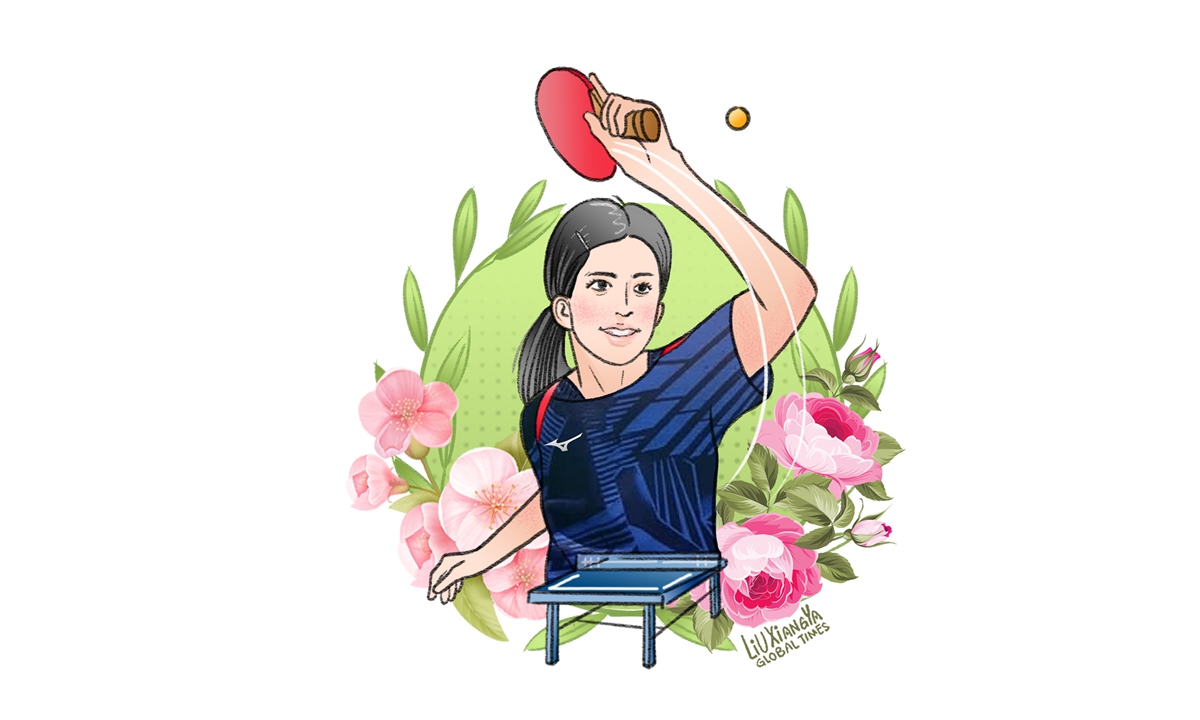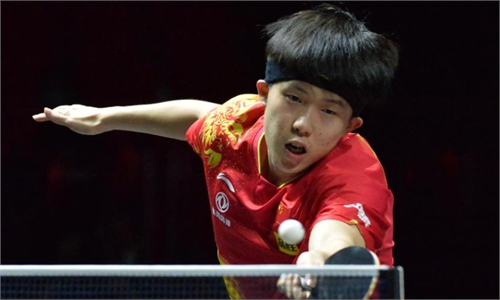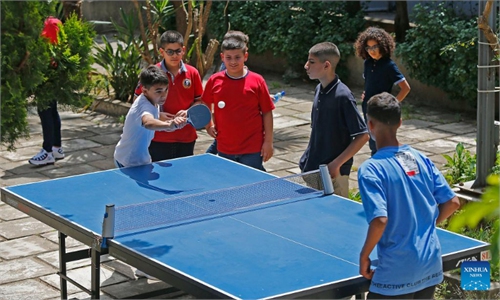ARTS / CULTURE & LEISURE
Retiring Japanese table tennis star earned popularity in China with kindness

Illustration: Liu XiangYa/Global Times
At the beginning of May, Japanese table tennis star Kasumi Ishikawa abruptly announced that she was retiring from competitions, which triggered a wave of Chinese fans paying respect to her career on Chinese social media platforms.
Ishikawa posted the Chinese-version of the announcement on Sina Weibo, noting that having Chinese coaches allowed her to gradually be able to speak Putonghua (standard Chinese) and learn about Chinese culture, which ultimately enabled her to talk with her Chinese opponents, fellow players and fans. The post has received nearly 82,000 likes, 12,000 re-posts and nearly 9,000 comments as of press time on Sunday.
Ishikawa's career was not a gold medal-studded one, as she only bragged a mixed doubles gold medal at the 2017 world championships. Nevertheless, she was able to make some breakthroughs at the Olympic Games.
The 30-year-old left-hander was part of the team that won silver at the London Games in 2012 - Japan's first Olympic table tennis medal - in her debut at the Olympics, before claiming bronze in the same event four years later in Rio de Janeiro and silver again in Tokyo in 2021.
Ai Fukuhara, a member of Japan's medal-winning 2012 and 2016 Olympic women's teams and a play who remains popular in China despite retiring in 2018, has credited Ishikawa for helping Japanese table tennis reach new heights, saying without Ishikawa the Japan team wouldn't have achieved such results.
But Ishikawa's accomplishments go beyond her individual achievements, as she played an important role in building bridges between Japan and China through the sport she loves.
Some argue that since Ishikawa was unable to challenge Chinese players' dominance in the sport, this made her an "innocuous" figure - unlike her compatriots Tomokazu Harimoto and Mima Ito, both of whom once posed serious challenges to the Chinese national team. But it was Ishikawa's humble personality as well as her desire to study that helped make her popular in China.
Her kindness to fans and media earned her the Chinese nickname Chunmei, literally "young sister Chun," Chun being the Chinese pronunciation of the "sumi" part of Kasumi. During Ishikawa's last two competitive tournaments in April in Xinxiang, Central China's Henan Province, and Macao, hundreds of Chinese fans gathered at the events to cheer her on.
Ishikawa ended her career with a 3:1 defeat to Chinese player Chen Meng. Though holding an embarrassing record of 1 win and 11 defeats to Chen, Ishikawa posted a photo of herself with Chen after the match, noting she was happy to have the chance to compete against "a respected great player who is also a good friend."
Also widely known to the Chinese fans is that Ishikawa looks up to China's table tennis great Ma Long, a five-time Olympic gold medalist who also holds 13 world titles. Ishikawa had publicly said she hopes to pair with Ma in a doubles event one day. But to fans' disappointment, this dream was never fulfilled.
Starting to play table tennis at 7, Ishikawa used to train under her mom Kumi (Ishikawa), a former Japanese national team member. As she progressed, Ishikawa was later coached by Chinese coaches Zhang Rui, Chen Lili, Li Lu, Wang Rui and Qiu Jianxin during a time when China remained the most dominating force in the sport.
This has given her a unique perspective on the sport as training in China allowed her to gain a deep appreciation for Chinese culture and language. Ishikawa's fluent Putonghua , though sometimes spoken with a stylish Northeastern accent, has helped her to communicate with other Chinese players and earned the attention of Chinese media. Ishikawa has also volunteered as an interpreter at certain table tennis events.
The table tennis rivalry between China and Japan will continue, but a player like Ishikawa, a valuable "ambassador" for the sport who used table tennis as a way to build understanding and friendship, deserve louder applause. At a time when the world is facing so many challenges, we need more people like Ishikawa who can bring people together and promote understanding and cooperation.


